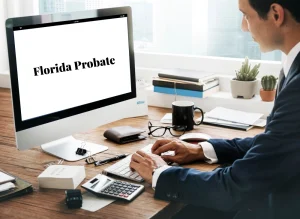
The world has changed dramatically in the last decade. Today, more people in Florida own cryptocurrency, NFTs, digital art, and online businesses than ever before. But what happens to these digital assets when someone passes away? Can they be inherited like money in a bank account, or do special rules apply?
In this 2025 guide, we’ll explore how Florida probate law is adapting to the digital age—and what families and executors need to know to safeguard valuable online property.
Understanding Digital Assets in Florida Probate
Digital assets entail all of your social media profiles and email to cryptocurrency wallets, online businesses, and cloud storage files. Under Florida law, these are considered part of your estate, just like physical property.
However, accessing them after death can be complicated. Unlike a home or car, digital property is often locked behind passwords, encryption keys, or private platforms that require legal authority to access.
Florida’s Digital Assets Law
Florida has adopted the Revised Uniform Fiduciary Access to Digital Assets Act (RUFADAA), which governs how executors, trustees, and agents can manage digital assets after someone’s death.
In simple terms, this law:
- Allows a personal representative (executor) to access digital accounts if permission was granted in the person’s will or other estate planning documents.
- Requires online service providers (like Google, Apple, or Facebook) to honor these permissions—if the deceased clearly authorized it.
- Protects privacy, meaning that without proper legal authorization, even family members may not access digital content.
This means if someone never updated their will to include digital asset instructions, their family might face long delays—or even lose access to valuable online property.
Cryptocurrency and Probate Challenges
Cryptocurrency introduces a unique challenge. Coins like Bitcoin, Ethereum, or Solana are not stored in banks; they’re kept in digital wallets secured by private keys.
Without the private key, no one—not even a court—can access those funds. There’s no “password reset.”
That’s why estate planning experts in Florida strongly recommend:
- Storing private keys securely but accessibly (e.g., in a safety deposit box or encrypted drive).
- Naming a digital executor who understands how to handle crypto assets.
- Including wallet details and access instructions in estate documents.
A single missing key could mean losing thousands of dollars in crypto forever.
Social Media, Emails, and Online Businesses
Beyond cryptocurrency, online presence also matters in modern probate. Platforms like Meta, Google, Amazon, and Shopify each have their own rules for managing deceased users’ accounts.
- Facebook allows memorialization or removal of an account by a verified contact.
- Google offers an “Inactive Account Manager” tool that lets users decide who can access their data if they pass away.
- Online store or content creators (e.g., Etsy, YouTube, or Patreon users) may have income-generating assets that must be transferred properly.
These online properties can have real financial value—and should be listed in an estate’s inventory.
Best Practices for Managing Digital Assets in Florida Probate
To make digital estate administration smoother, consider these practical steps:
- Create a Digital Asset Inventory – List your accounts, crypto wallets, and online businesses.
- Grant Legal Access – Use your will or trust to authorize a personal representative to manage digital assets.
- Use Password Managers or Legacy Tools – Services like LastPass or Google’s legacy settings help simplify access.
- Consult a Florida Probate Attorney – Especially one familiar with RUFADAA and digital estate planning.
The Future of Probate in a Digital World
As technology continues to evolve, so must estate planning. In 2025, it’s no longer enough to think only about houses, cars, or bank accounts. A full estate plan must include instructions for your digital footprint—from crypto to email accounts.
By understanding how Florida probate treats digital assets, families can avoid unnecessary legal battles, protect valuable online property, and ensure a smooth transfer of wealth in the modern world.
Key Takeaway
Your digital life is part of your legacy. Whether it’s cryptocurrency, social media, or cloud storage, make sure your Florida estate plan includes clear instructions for your digital assets—before it’s too late. For more details, check out our Top FAQs About Digital Assets and Florida Probate (2025 Update)



